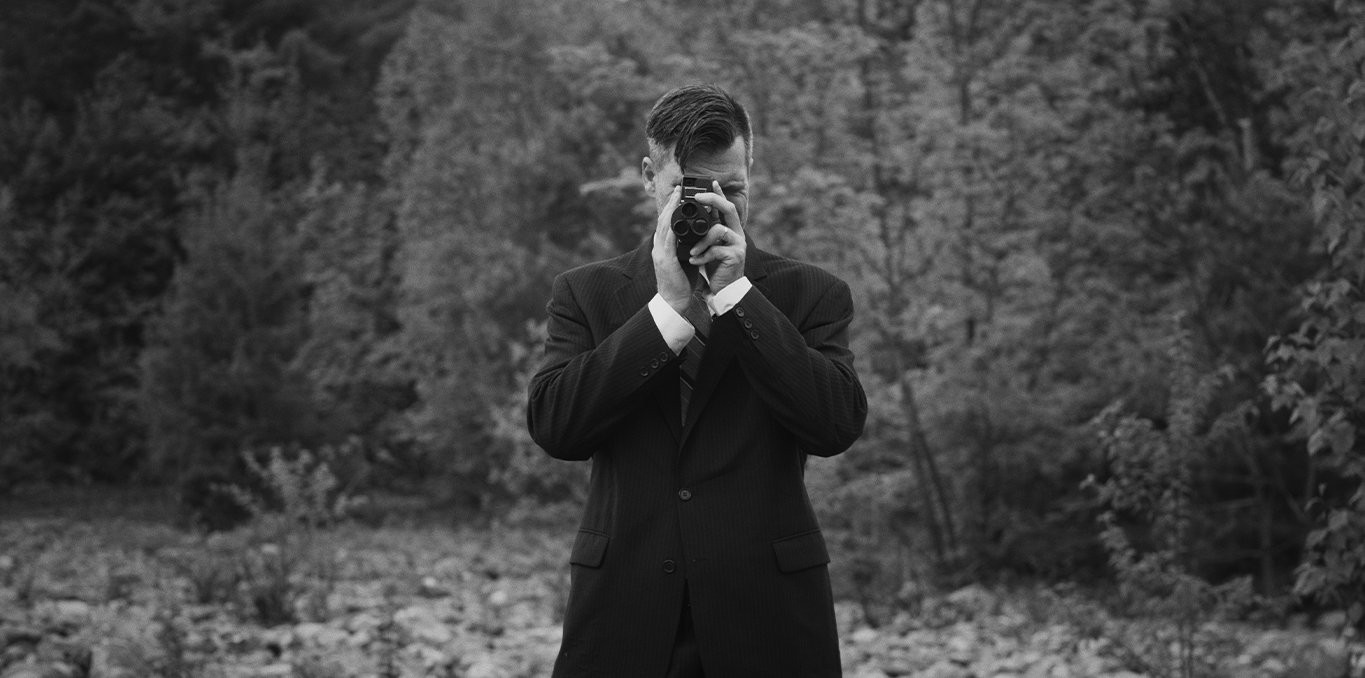Diary of a Father

To make up for the absence of his six-year-old daughter who lives in Berlin, a Montreal filmmaker keeps a film diary that conjures up his relationship with his adoptive father and his biological father, whom he never knew. His film diary also becomes a reflection on filmmaking by revisiting the work of directors who have influenced him, such as Ingmar Bergman and Wim Wenders. _Diary of a Father_ is a poetic response to help make the separation between a father and his daughter bearable.
| Director | Paul-Claude Demers |
| Share on |
With Diary of a Father, Paul-Claude Demers continues an intimate exploration begun with Where I'm From (2014) and A Woman, My Mother (2019). Once again, he maps the absences that shaped his childhood as an adopted child—both that of his biological father and his once-distant, now-deceased adoptive father. But this time, another role shades his experience: he is a father himself, forced to live far from his child, terrified of being absent in the same way. Memory of the past, search for origins, anxiety about the future—everything is now perceived through the lens of the present embodied by his beloved daughter across the ocean.
This present takes the form of a conscious flow of images and moments, fragments of daily life, dreamed sensations, or fleeting impressions, filmed in ashen black and white—the color of gray days, uncertain memories, and overlapping eras. As its title suggests, Diary of a Father is a personal journal, an open and moving book guided by the filmmaker’s voice. Yet this intimate collection also delineates a shared territory, where even the smallest details carry emotional weight, evoking the fragile children that linger within adult bodies.
Apolline Caron-Ottavi
Writer and programmer
Cinémathèque québécoise

-

Français
1h15
Language: Français -

English
1h15
Language: English
- Année 2023
- Pays Quebec
- Durée 75
- Producteur Les Films de l'Autre, Paul-Claude Demers
- Langue French
- Sous-titres English
- Résumé court To make up for the absence of his six-year-old daughter who lives in Berlin, a Montreal filmmaker keeps a film diary.
- Ordre 2
- TLF_Applismb_CA 1
- Date édito CA 2025-10-17
With Diary of a Father, Paul-Claude Demers continues an intimate exploration begun with Where I'm From (2014) and A Woman, My Mother (2019). Once again, he maps the absences that shaped his childhood as an adopted child—both that of his biological father and his once-distant, now-deceased adoptive father. But this time, another role shades his experience: he is a father himself, forced to live far from his child, terrified of being absent in the same way. Memory of the past, search for origins, anxiety about the future—everything is now perceived through the lens of the present embodied by his beloved daughter across the ocean.
This present takes the form of a conscious flow of images and moments, fragments of daily life, dreamed sensations, or fleeting impressions, filmed in ashen black and white—the color of gray days, uncertain memories, and overlapping eras. As its title suggests, Diary of a Father is a personal journal, an open and moving book guided by the filmmaker’s voice. Yet this intimate collection also delineates a shared territory, where even the smallest details carry emotional weight, evoking the fragile children that linger within adult bodies.
Apolline Caron-Ottavi
Writer and programmer
Cinémathèque québécoise
-

Français
Duration: 1h15Language: Français1h15 -

English
Duration: 1h15Language: English1h15
- Année 2023
- Pays Quebec
- Durée 75
- Producteur Les Films de l'Autre, Paul-Claude Demers
- Langue French
- Sous-titres English
- Résumé court To make up for the absence of his six-year-old daughter who lives in Berlin, a Montreal filmmaker keeps a film diary.
- Ordre 2
- TLF_Applismb_CA 1
- Date édito CA 2025-10-17
